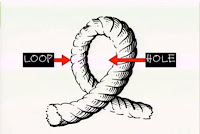Lent is a time when Christians traditionally fast from some
food or activity for forty days in remembrance of Jesus’ forty day fast in the
wilderness. This Lent I decided to give up desserts. It seemed like a good idea
at the time. My wife gave up potato chips. Salty things are her weakness. Mine
is sweets. I tell people I am sweet, and she is salty. (Actually it is the
other way around!)
I renounced all types of desserts – pies, cake, cookies, puddings,
and even ice cream. That decision was made when I was snowbound in New
Hampshire, where it is easy to avoid ice cream stands in the winter. They are
all closed. Now deep into Lent I find myself in sunny Florida surrounded by open
ice cream stands, and they are calling my name. Lucky for me I am a preacher,
and I know a loophole. I knew about it when I made the vow.
Lent is the 40 day period that begins on Ash Wednesday and
ends with Easter Sunday. But when you count the days on a calendar you will
find there are actually 46 days between these holidays. Many Christians do not realize
that Lent does not include Sundays. Sundays are considered “feast days” in the
midst of the forty “fast days” of Lent. Sundays are oases in the wilderness of
Lent. For that reason Sundays are said to be “in Lent” and not “of Lent.” In
contrast, in December Sundays are marked “of Advent.”
In other words Sundays do not count when it comes to Lenten
fasting. In the same spirit Muslims fast for a month during the holy season of
Ramadan, but only during the daylight hours. Every evening they break the fast
with the Iftar meal, eaten at sunset. Likewise I can break my fast with ice
cream every Sunday while basking in the Florida sun! But only on Sundays. And today
is Sunday! Alleluia! (Oh, sorry. That is another rule. You can’t say alleluia
between Ash Wednesday and Easter – not even on Sunday.)
The reason I am writing about loopholes is to reveal how
deceptive the heart is. There is a story in the Gospel of Mark where the
Pharisees were self-righteously condemning Jesus’ disciples for not ritually washing
their hands before they ate. Jesus called the Pharisees hypocrites for putting
religious traditions above God’s commandments. He pointed to the example of a
man who found a loophole in the commandment to honor your father and mother. The
man learned that if he declared his resources “corban” (devoted to God) he did
not have to use them to care for his parents. Jesus said, “Many such things you
do.”
Religion is filled with rules and traditions! They are often
used to avoid God. In this way Christianity has often fallen into legalism and
hypocrisy. The self (or ego) naturally acts in a selfish manner. The self wants
what the self wants, and it will find any excuse to get what it wants. There is
no way to tame the egoic self, regardless of how many vows we take. Vows only
serve to reveal how unruly the self is. The only permanent solution is the death
of the self.
That is the meaning of the cross. The mystics say we are to “die before we die.” In this spirit Jesus taught us to deny the self, take up the cross and follow him. But until our physical death we have to put up with this “body of death,” as the apostle Paul calls it. We carry this selfish self around with us like an unruly pet.
Buddhists call it the monkey mind. I affectionately
call it my pet ape. (We are zoologically apes, after all.) Paul called it the
flesh or the “old man.” We keep it on a leash, but sometimes it breaks free and
runs like a puppy free of its lead. In my case it heads directly for the
nearest homemade ice cream stand. “Chocolate chip cone, please!”
I know my pet ape well. I know its limits. It does not like fasts and fights against them. I have learned that I do best during Lent when I observe the feast days in the midst of the fast days. These Sundays “in Lent” are known in Christianity as “little Easters.” These mini-Easters make Lent doable, just like the big Easter makes life livable. By celebrating “little Easters” I can celebrate Easter Sunday with the joy of knowing I kept my Lenten vow, rather than feel guilty for failing to keep it. In short, be gentle – yet firm – with your pet ape. After all, it is only human.


.jpg)








